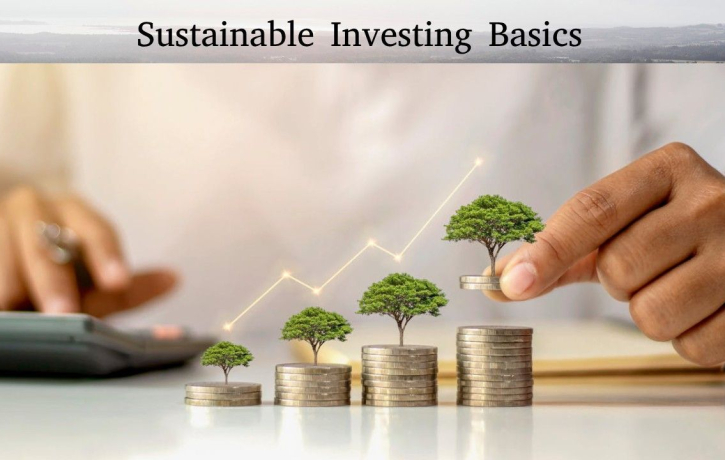Sustainable Investing: Aligning Your Money with Your Values
Sustainable Investing Basics. As awareness of environmental and social issues grows, more investors are seeking ways to align their money with their values. Sustainable investing, also known as socially responsible investing (SRI) or ESG (Environmental, Social, and Governance) investing, offers a path to generate financial returns while supporting causes that matter to you. Whether you’re new to investing or looking to shift your portfolio toward more ethical options, understanding the basics of sustainable investing is a great place to start.
What Is Sustainable Investing?
Sustainable Investing Basics integrates environmental, social, and governance factors into investment decisions. Rather than focusing solely on financial returns, sustainable investors consider how companies impact the world around them. This can include:
-
Environmental: Companies’ efforts in reducing carbon emissions, managing waste, and conserving natural resources.
-
Social: Treatment of employees, community engagement, diversity and inclusion, and human rights practices.
-
Governance: Corporate leadership, executive pay, transparency, and shareholder rights.
The goal is to invest in companies that are not only profitable but also responsible and ethical.
Types of Sustainable Investing Strategies
-
Negative Screening
Avoiding investments in industries or companies that do not align with certain values, such as tobacco, fossil fuels, or firearms. -
Positive Screening
Actively selecting companies with strong ESG practices or those making positive contributions in their sectors. -
Impact Investing
Directing capital to projects or companies specifically designed to generate measurable social or environmental impact alongside financial returns. -
ESG Integration
Systematically including ESG criteria in traditional financial analysis to identify risks and opportunities.
Why Consider Sustainable Investing?
-
Align Values with Investments
Sustainable investing allows you to support companies that reflect your ethical priorities and contribute to positive change. -
Potential for Long-Term Returns
Companies with strong ESG practices may be better positioned for long-term success by managing risks and fostering innovation. -
Growing Market Demand
As consumer and regulatory pressures increase, businesses focused on sustainability often enjoy competitive advantages. -
Risk Management
Considering ESG factors can help avoid companies with potential environmental liabilities, legal issues, or reputational damage.
How to Get Started
-
Assess Your Values and Goals
Determine which issues matter most to you—climate change, social justice, corporate ethics—and what you want from your investments. -
Research Sustainable Funds and ETFs
Many mutual funds and exchange-traded funds focus on ESG criteria, making it easier for individual investors to access diversified portfolios. -
Check ESG Ratings and Reports
Use resources like MSCI ESG Ratings, Sustainalytics, or company sustainability reports to evaluate potential investments. -
Consult a Financial Advisor
Professionals can help tailor a sustainable investing strategy that fits your financial situation and ethical preferences.
Conclusion
Sustainable Investing Basics is more than a trend—it’s a growing movement that empowers investors to make a difference while pursuing financial goals. By understanding the basics and taking thoughtful steps, you can build a portfolio that supports a healthier planet, fairer societies, and responsible governance—all while aiming for solid returns.








